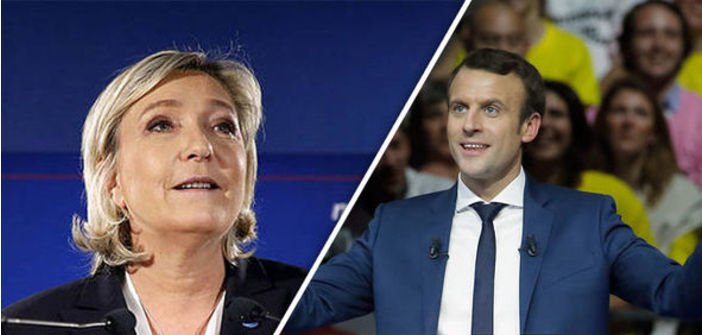In a democracy, there is a basic rule: the voters are always right!
Emmanuel Macron (23.9%) and Marine Le Pen (21.4%) are therefore legitimized to face each other in the second round, which will determine the name of the future President of the Republic.
It is the young and new candidate who won the first round that created the surprise; his political movement is recent, and he himself is engaged in his first electoral campaign.
His reformist program, which disregards the right/left divide to embody a logic of change and progress against conservation, has received support from several personalities in the political sphere and civil society and has struck a chord with the electorate.
It is also a victory for the pro-Europe advocates, one of the strong points of Macron’s program.
Emmanuel Macron is largely favored for the second round: he has already received support from some of his eliminated competitors, François Fillon, Benoît Hamon, and the (hot) polls give him a wide and comfortable lead: 62 to 38%.
Marine Le Pen secures her place in the second round after an electoral campaign that saw her lose several percentage points compared to earlier polls, which initially had her largely in the lead with a score of nearly 30%. Generally speaking, she failed to establish a winning mark beyond the cliché of being the candidate of the people and patriots. Nice slogans, but claiming exclusivity reinforces the idea that it’s a posture and nothing more.
The historical defeat for the Republicans is both unforeseen and logical: their candidate had won the primary with a commendable score thanks to the mobilization of a radical electorate, united around themes for which François Fillon proposed divisive solutions. But while the wish of an organized, mobilized minority can win an election in a limited perimeter, the same wish becomes a handicap in a general election where one must unify rather than divide to gather broadly.
Moreover, François Fillon was weighed down by the “affairs” that portrayed him as a character quite different from the provincial bourgeois he likes to present himself as.
Eventually, he proved to be a mediocre candidate, with a conservative program inspired by his inner circle, which gradually became a poor copy of Marine Le Pen’s.
His underperformance brings renewed relevance to the definition of him that had sparked talk during Nicolas Sarkozy’s presidency, in which he was the diligent Prime Minister: “my collaborator.” Once a collaborator, always a collaborator. How could one think of becoming President of the Republic?
Even if he did not reach the end of his aspirations that he had begun to believe in, Jean-Luc Mélenchon is the one who, after Emmanuel Macron, succeeded best in his campaign: of course, his success is mainly that of a talented actor because his program does not go beyond a few slogans, but don’t people prefer variety to tragedy? An old performer in the political life, the pseudo-revolutionary played his part to perfection and reaped significant benefits.
He should acknowledge having had his task eased by the candidacy of Benoît Hamon, the Socialist left representative of the “rebels” who spent their time during the five-year term sabotaging François Hollande and his social-democratic policy. A candidate devoid of color and flavor, utterly inconsistent, who, moreover, lost along the way the only idea that filled a desperately empty campaign notebook: the universal income.
Abandoned by a large part of the party leaders who chose Emmanuel Macron over him, he remained supported by the so-called left of the party, a collection of homeless thinkers, good only at arguing against but incapable of putting together logical and sustainable propositions in the real world.
To conclude, a note regarding the polls: for the first time in several elections, this time pollsters were not wrong, except on the margins.
The predictions, which evolved throughout the campaign, were confirmed by the results/estimates of Sunday’s vote.


